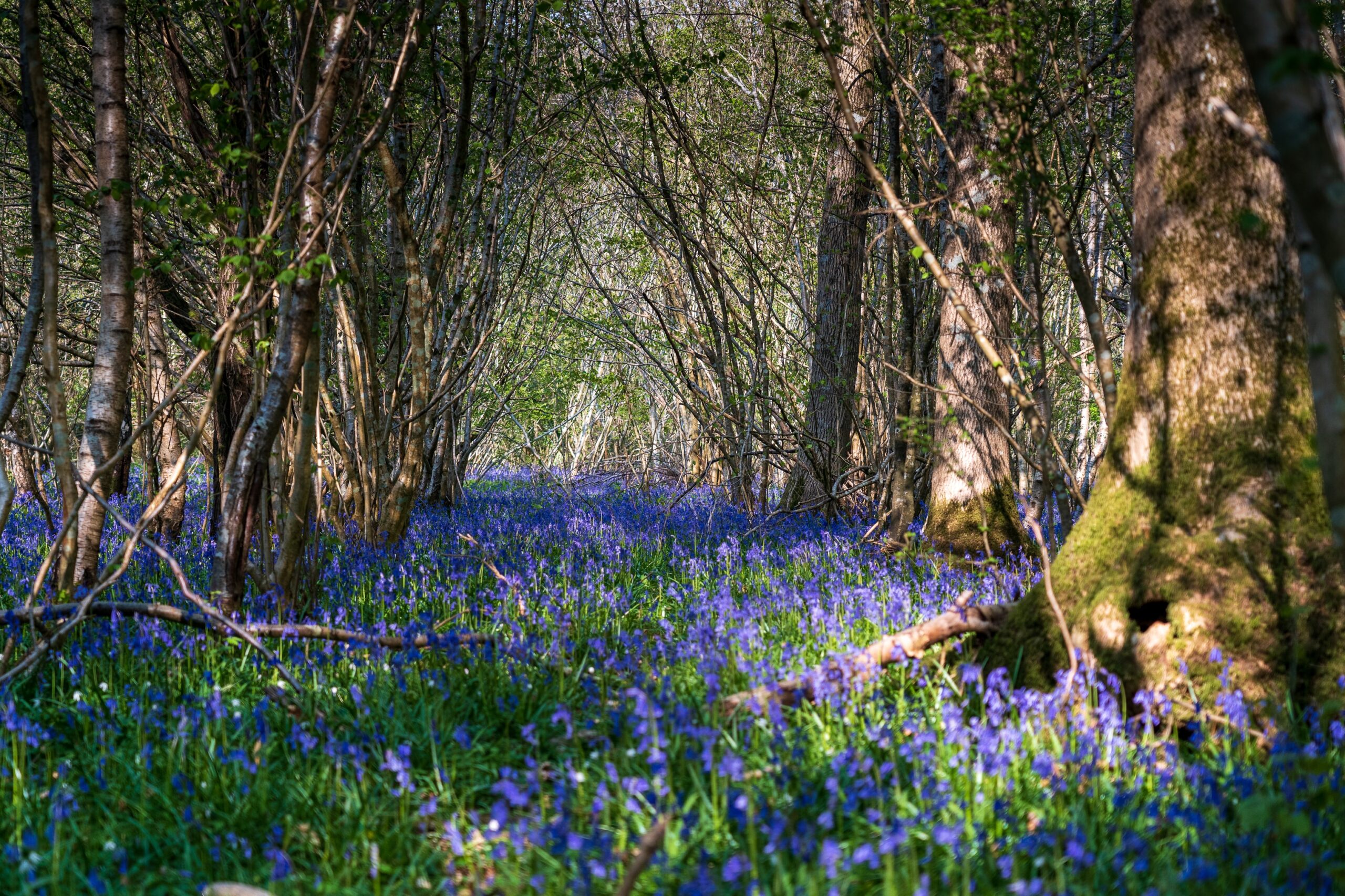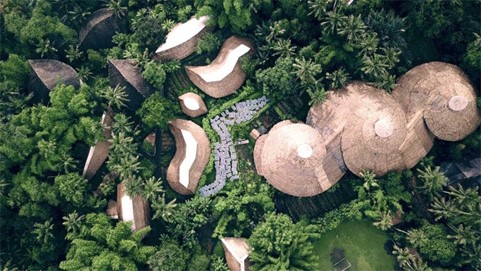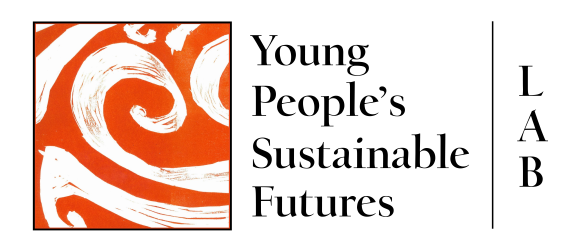
Further evidence that green = happy
In the previous blog of this series exploring the promise of regenerative education, I discussed the health benefits of connecting to nature, including connection to country, Shinrin-yoku (forest bathing), and how the inner self needs to be considered when looking to fix the outer environment.
In this final blog I examine further evidence for green, consider whether our current system of education meets the current and future needs of students, assess the current challenges for change, and argue that a framework of regenerative education can be implemented within the constraints of the current curriculum. Finally, I will summarise the findings of this literature review in relation to the research question of: ‘Can a pedagogy of regenerative education and related learning theories, support young people’s ongoing wellbeing during the permacrisis?’
Not all people have the benefit of abundant green spaces to make a connection to place. The World Bank (2023) estimates that more than 56% of the world’s population lives in urban areas or cities. As global populations increase at currently unsustainable levels, this growth is expected to add over 1.2 million km² of new urban space to the globe by 2030, putting further strain on land and natural resources. It is suggested by Kuhn et al. (2023, p. 311) quoting Peen et al. (2010) that ‘increasing urbanism can be described as one of the most important health issues of the 21st century…since mental health issues seem more frequent in cities’.
In a study conducted in the Netherlands, the most densely populated country in Europe, Kuhn et al. (2023, p. 311) suggest that there is accumulating evidence of the influence of green spaces on mental and brain health:
The literature linking long-term green space exposure to mental health indicates a positive association between the amount of green space around the home address and life satisfaction (hedonic wellbeing)…green space exposure around the home address is associated with positive outcomes, including fewer emotional and behavioural difficulties as well as less hyperactivity and inattention problems. Moreover, there is some evidence suggesting a positive association between green space around the home address and well-being in children and a negative association with depressive symptoms in adolescents and young adults.
These findings make further coordinated urban planning to include multiple green spaces imperative.
Education fit for purpose
There is no doubt that the permacrisis has created a catalyst, if not for change, then at least a review of the traditional systems of education by all levels of policy makers. This analysis needs to consider whether the system meets the expectations of students so that they can survive and thrive in an unknown future. The changes need to provide the skills for students to develop capacity to analyse the complexity of problems, to encourage inner reflection while understanding the relationship between their inner self and the environment in which they inhabit.
As Buckton et al. (2023, p. 1) state ‘transformations across societies – for better or worse – are inevitable given the scale, pace and depth of environmental change’. This inevitable requirement for change also applies to education, which can be considered a complex system with many interrelated components including policy, curriculum, cross curriculum priorities, student safety and wellbeing, teachers and teaching practices, and funding. Nally (2022, p. 278) suggests that the permacrisis has ‘stripped back’ Australian education, revealing all its scars and imperfections: ‘the ongoing effects of COVID-19 on societies mirror its impacts on education; advantages and disadvantages embedded in economic and social inequalities have become more publicly visible’.
Reports on education post COVID have focused on lost learning opportunities, wellbeing concerns (especially psychological), systemic inequity based on socioeconomic status, disability, and individualised student requirements. In response to these concerning reports, Nally (2022, p. 285) proposes that:
Differentiation and school policies must become adaptive and innovative based on incorporating a consistent approach to interpreting data based on an equity and needs based ethos and step away from standardised testing…finding learning oriented partnerships between schools and communities…and a need for all members of the school community seek to establish themselves as part of the whole.
Other papers suggest that education needs to change in order to better prepare students. Verlie and Flynn (2022, pp. 2-3) suggest that as educators ‘they had to seriously consider whether education is fit for purpose…Many educators and education scholars are posing the same thing…questioning whether mainstream education is not only inadequate but obstructive’. Meanwhile, Giangrande et al. (2019, pp. 4-5) suggest that we need to be developing key competencies such as ‘future thinking, capacity for empathy and compassion, interdisciplinary learning, transcultural understanding…to educate the “whole person” and support “habits of mind”’. Arnove (2020, p. 43) indicates that COVID-19 revealed ‘institutionalised forms of discrimination rooted in race, ethnicity, class, gender, sexual orientation age and abilities…patently manifested in education systems…critically imagined curricula have a role to play in addressing these inequities at all levels from local to global…moving away from high stakes testing’.
Challenges for change
As discussed in the literature, it has become clear that our current or traditional system of education based on academia is not meeting the needs of students now or for their futures. However, it is recognised that it is difficult to implement change, especially as our current systems are so entrenched. The current model of education has been described as ‘industrial education’ (Gonski et al. 2018) and as acting like a ‘bank’ where knowledge is deposited, with learning being a one way street from teacher to student (Freire, 2014). The Australian education system does not have a standardised curriculum, so not all students are taught the same content, and it is ‘overcrowded’ making it difficult to encourage teachers to adopt more content to teach. This overcrowding is discussed by Menzie-Ballantyne and Ham (2020, p. 86) regarding the Australian curriculum (ACARA, 2020): ‘Teachers have told us that, particularly in primary years, the Australian Curriculum is overcrowded…schools and teachers want a less crowded curriculum, one that provides flexibility and scope for greater depth of learning…with more meaningful connections across the three dimensions’.
I argue that the pedagogy of Regenerative Education is one that can be implemented within the curriculum framework. Sustainability and Aboriginal and Torres Strait histories and cultures are 2 of the 3 cross curriculum priorities, and both contribute intrinsically to providing regenerative education practices. This then leads to teacher desire and capability at integrating all the competencies such as ‘letting go control’ to allowing student agency and choosing ways to apply Indigenous knowledge across all subjects at all year levels. Perceptions can also play a key role where the term regenerative is involved; many may understand the concept of regenerative agriculture and then consider that this does not apply to me or my role. However, there is growing evidence that this framework is being successfully integrated into current Victorian curriculum across all year levels. The Woodleigh School and connected Woodleigh Institute southeast of Melbourne have adopted regenerative concepts and practices school-wide and have been very successful at developing students ready for the unknown future of life on our planet. There are others worldwide and the movement is growing.
I leave you with a photo of the Green School in Bali (see below), one of a series of Green Schools which epitomise the Regenerative Education movement.

Green school in Bali. Source: https://www.facebook.com/greenschoolbali/
Glossary
What is Inquiry based learning:
‘Inquiry based learning (IBL) is an education approach focusing on investigation and problem solving. Inquiry based learning prioritises problems that require critical and creative thinking so students can develop their abilities to ask questions design investigations, interpret evidence, form explanations and arguments, and communicate findings’ (Clarke, 2021)
What is Systems thinking theory:
‘A dynamic framework for describing, assessing, analysing and explaining how a person and world function together in human development, allows for focus on constituent parts, these constituents are relational in nature and ways systems function within the context of larger nested systems . Systems within Systems.’ (Spain, 2019)
What is Social Emotional learning:
‘Social Emotional Learning (SEL) is the process through which all young people and adults acquire and apply the knowledge, skills, and attitudes to develop healthy identities, manage emotions and achieve personal and collective goals, feel and show empathy for others, establish and maintain supportive relationships, and make responsible and caring decisions’ (CASEL, 2022)
What is Transdisciplinarity relating to regenerative processes:
‘Transdisciplinarity is a way of organising the research when the subject is studied through the prism of many sciences, and the study of the object goes not only beyond specific scientific disciplines but also beyond the scope of science itself. Solving the problem involves not only scientists but representatives of other social institutions forming the opinion: political parties, social movements, and media, including the new media. Transdisciplinarity is applied to the solution of global problems of civilization.’ (Gendia, 2017)
Anthropocentrism:
‘Anthropocentrism literally means human-centred…regarding humankind as central or most important element of existence…the ethical belief that humans alone posses intrinsic value’ (Goralnik & Nelson, 2012)
A pedagogy of discomfort:
‘A pedagogy of discomfort (Bolar, 1999) recognises the degree to which epistemogy, emotions and ethics are closely entwined both within and beyond the classroom shaping who, what, where, why and when we can see. It recognises not only the intellectual and cognitive focus of education but also its embodied and affective dimensions.’ (Head, 2019)
References
Andersson, J. (2022, March 10). An Economy of Place — Part 1. Regenerate the Future. https://medium.com/activate-the-future/an-economy-of-place-part-1-6868c14092b2
Arnove, R. F. (2020). Imagining what education can be post-COVID-19. PROSPECTS, 49, 43–46. https://doi.org/10.1007/s11125-020-09474-1
Black Dog Institute. (2020). Youth mental health. Black Dog Institute. https://www.blackdoginstitute.org.au/research-areas/youth-mental-health/
Bright, M. L., & Eames, C. (2021). From apathy through anxiety to action: emotions as motivators for youth climate strike leaders. Australian Journal of Environmental Education, 38(1), 1–13. https://doi.org/10.1017/aee.2021.22
Buckton, S., Fazey, I., Sharpe, B., Suzanne Om, E., Doherty, B., Ball, P., Denby, K., Bryant, M., Lait, R., Bridle, S., Cain, M., Carmen, E., Collins, L., Dixon, N., Yap, C., Connolly, A., Fletcher, B., Frankowska, A., Gardner, G., & James, A. (2023). The Regenerative Lens: A Conceptual framework for regenerative social-ecological systems. One Earth , 6, 824–842.
Callaghan, P., & Uncle Paul Gordon. (2023). The Dreaming Path. HarperCollins.
Ciarlo, G. (2020, October 22). A Regenerative Education for our times. Resilience. https://www.resilience.org/stories/2020-10-22/a-regenerative-education-for-our-times/
Clarke, M. (2021, June 21). Inquiry-based learning – Department of Education, Australian Government. Department of Education. https://www.education.gov.au/australian-curriculum/national-stem-education-resources-toolkit/i-want-know-about-stem-education/what-works-best-when-teaching-stem/inquiry-based-learning#:~:text=Inquiry%2Dbased%20learning%20prioritises%20problems
Colla, R., & Mossman, L. (2023). Wellbeing integrated learning design framework: a multi-layered approach to facilitating wellbeing education through learning design and educational practice. Frontiers in Education, 8(1), 1–11. https://doi.org/10.3389/feduc.2023.1216658
Collaborative for Academic, Social, and Emotional Learning (CASEL). (2022). Fundamentals of SEL. Casel. https://casel.org/fundamentals-of-sel/
Crandon, T. J., Scott, J. G., Charlson, F. J., & Thomas, H. J. (2022). A social–ecological perspective on climate anxiety in children and adolescents. Nature Climate Change, 12(2), 123–131. https://doi.org/10.1038/s41558-021-01251-y
Dean’s Lecture Series – Prof Marcia McKenzie on education for a planet on fire: climate crisis. (2023, September 21). Www.youtube.com. https://www.youtube.com/watch?v=STdaKxWrvTk
Fairly, C. (2023, September 27). General discussion [Discussion with Alison Read].
Freire, P. (2014). The ” Banking ” Concept of Education. http://puente2014.pbworks.com/w/file/fetch/87465079/freire_banking_concept.pdf
Gendina, N. (2017). Transdisciplinarity – an overview | ScienceDirect Topics. Www.sciencedirect.com. https://www.sciencedirect.com/topics/social-sciences/transdisciplinarity#:~:text=Transdisciplinarity%20is%20a%20way%20of
Giangrande, N., White, R. M., East, M., Jackson, R., Clarke, T., Saloff Coste, M., & Penha-Lopes, G. (2019). A Competency Framework to Assess and Activate Education for Sustainable Development: Addressing the UN Sustainable Development Goals 4.7 Challenge. Sustainability, 11(10), 2832. https://doi.org/10.3390/su11102832
Gonski, D., Arcus, T., Boston, K., Gould, V., Johnson, W., O’Brien, L., Perry, L-A. & Roberts, M. (2018). Through Growth to Achievement: Report of the Review to Achieve Educational Excellence in Australian Schools, Department of Education and Training, Canberra.
Goralnik, L., & Nelson, M. P. (2012). Anthropocentrism – an overview | ScienceDirect Topics. Www.sciencedirect.com. https://www.sciencedirect.com/topics/social-sciences/anthropocentrism#:~:text=Anthropocentrism%20literally%20means%20human%2Dcentered
Green School. (2019). Greenschool.org. https://www.greenschool.org/
Gunasiri, H., Wang, Y., Watkins, E.-M., Capetola, T., Henderson-Wilson, C., & Patrick, R. (2022). Hope, Coping and Eco-Anxiety: Young People’s Mental Health in a Climate-Impacted Australia. International Journal of Environmental Research and Public Health, 19(9), 5528. https://doi.org/10.3390/ijerph19095528
Hawken, P. (2021). Regeneration : ending the climate crisis in one generation. Penguin Books.
Head, N. (2019). A “Pedagogy of Discomfort”? Experiential Learning and Conflict Analysis in Israel-Palestine. International Studies Perspectives, 21(1). https://doi.org/10.1093/isp/ekz026
Hickman, C. (2020). We need to (find a way to) talk about … Eco-anxiety. Journal of Social Work Practice, 34(4), 411–424. https://doi.org/10.1080/02650533.2020.1844166
Imagine (Remastered 2010). (n.d.). Www.youtube.com. Retrieved October 8, 2023, from https://youtu.be/rAn-AWXtHv0
Iversen, A.-M., Pedersen, A. S., Krogh, L., & Jensen, A. A. (2015). Learning, Leading, and Letting Go of Control. SAGE Open, 5(4), 215824401560842. https://doi.org/10.1177/2158244015608423
Kanji, H. (2020, December 4). John Lennon at 80: Zen, Haiku, and His Ties to Japan. Nippon.com. https://www.nippon.com/en/japan-topics/g00979/#:~:text=Within%20the%20Beatles%2C%20George%20Harrison
Kelly, P. (2022, July 12). Regenerating Geelong – Young People’s Sustainable Futures Lab. Young People’s Sustainable Futures Lab – We Are a Collaborative Research Lab for Co-Designing Young People’s Sustainable Futures in Times of Crisis and Disruption. https://youngpeoplesfutureslab.org/project/regenerating-geelong/
Kuhn, S., Schmalen, K., Beijers, R., Tyborowska, A., Roelofs, K., & de Weerth, c. (2023). Green is not the same as Green: Differentiating Between the Associations of Trees and Open Green Spaces With Childrens Brain Structure in the Netherlands. Environment and Behaviour, 55(5), 311–334.
Mackay, G. (2020, September 16). https://twitter.com/mackaycartoons/status/1305875873611091969. X (Formerly Twitter). https://twitter.com/mackaycartoons/status/1305875873611091969
Menzie-Ballantyne, K., & Ham, M. (2021). School Strike 4 Climate: the intersection of education for sustainable development, education for global citizenship and the Australian Curriculum. Australian Journal of Environmental Education, 38(1), 1–11. https://doi.org/10.1017/aee.2021.14
Mission Australia. (2022). Youth survey | Mission Australia. Missionaustralia.com.au. https://www.missionaustralia.com.au/publications/youth-survey
Nally, D. (2022). Theorising post-truth in the COVID era. Journal of Educational Change, 23, 277–289. https://doi.org/10.1007/s10833-022-09457-3
Noorgard, K. (2011). Living in Denial: Climate Change, Emotions, and Everyday Life. The MIT press. http://www.jstor.org/stable/j.ctt5hhfvf
Ojala, M. (2020). Safe spaces or a pedagogy of discomfort? Senior high-school teachers’ meta-emotion philosophies and climate change education. The Journal of Environmental Education, 52(1), 40–52. https://doi.org/10.1080/00958964.2020.1845589
Oliver, T. (2020, January 20). The age of the individual must end – our world depends on it | Tom Oliver. The Guardian. https://www.theguardian.com/books/2020/jan/16/the-age-of-the-individual-must-end-tom-oliver-the-self-delusion
Owens, R. (2023, August 11). Compassionate Systems: In conversation with Dr Peter Senge. Www.youtube.com. https://www.youtube.com/watch?v=ij-imx_hTtY
Press, A. A. (2018, November 26). Scott Morrison tells students striking over climate change to be “less activist.” The Guardian. https://www.theguardian.com/environment/2018/nov/26/scott-morrison-tells-students-striking-over-climate-change-to-be-less-activist#:~:text=Scott%20Morrison%20has%20been%20labelled
Quality Education. (n.d.). Sustainable Development Goals Australia. https://sdgs.org.au/goal/quality-education/
Read, O. (2023, October 7). Conversation [Conversation with Alison Read].
S&P Global. (2023). Top Geopolitical Risks of 2023. S&P Global. https://www.spglobal.com/en/enterprise/geopolitical-risk/
Smith, S., Mason, J., & Bowden, M. (2020). Local Wisdom in Regenerative Teacher Practices. Australian Journal of Teacher Education, 45(9), 92–104. https://doi.org/10.14221/ajte.2020v45n9.6
Spain, S. (2019). Systems Thinking applied to curriculum and pedagogy: a review of the literature. Curriculum Perspectives, 39(2), 135–145. https://doi.org/10.1007/s41297-019-00085-1
The World Bank. (2023, April 3). Urban Development. World Bank. https://www.worldbank.org/en/topic/urbandevelopment/overview#:~:text=Today%2C%20some%2056%25%20of%20the
Thompson, R., Fisher, H. L., Dewa, L. H., Hussain, T., Kabba, Z., & Toledano, M. B. (2021). Adolescents’ Thoughts and Feelings about the Local and Global Environment: A Qualitative Interview Study. Child and Adolescent Mental Health, 27(1), 4–13. https://doi.org/10.1111/camh.12520
Turnbull, N. (2022, November 11). Permacrisis: what it means and why it’s word of the year for 2022. The Conversation. https://theconversation.com/permacrisis-what-it-means-and-why-its-word-of-the-year-for-2022-194306
UNESCO. (2015). UNESCO and Sustainable Development Goals. UNESCO. https://en.unesco.org/sustainabledevelopmentgoals
UNESCO. (2023). Education for sustainable development | UNESCO. Www.unesco.org. https://www.unesco.org/en/education-sustainable-development
Verlie, B., & Flynn, A. (2022). School strike for climate: A reckoning for education. Australian Journal of Environmental Education, 38(1), 1–12. https://doi.org/10.1017/aee.2022.5
Watch David Attenborough: A Life on Our Planet | Netflix Official Site. (n.d.). Www.netflix.com. Retrieved October 6, 2023, from https://www.netflix.com/watch/80216393?trackId=14170287&tctx=1%2C1%2C9789df95-3246-4200-86c1-d80fb42b5168-10348545%2CNES_483A66193167ADBC4DA9DC6662BF4D-994911DC4F528C-72840B913C_p_1696567246507%2C%2C%2C%2C%2C80049832%2CVideo%3A80216393%2CdetailsPageCollection
Wen, Y., Yan, Q., Pan, Y., Gu, X., & Liu, Y. (2019). Medical empirical research on forest bathing (Shinrin-yoku): a systematic review. Environmental Health and Preventive Medicine, 24(1). https://doi.org/10.1186/s12199-019-0822-8
Why Forest Bathing Can Make You Healthier and Happier. (n.d.). Www.austria.info. https://www.austria.info/en/wellbeing-nature/forests-nature/forest-bathing
Woodleigh school. (2023, September 5). Homepage. Woodleigh School. https://www.woodleigh.vic.edu.au/
Woodleigh Institute. (2023). Woodleigh Institute. Retrieved October 9, 2023, from https://www.woodleighinstitute.com/
World Health Organization. (2022, June 17). Mental Health. World Health Organization. https://www.who.int/news-room/fact-sheets/detail/mental-health-strengthening-our-response
Zhao, Y. (2020). COVID-19 as a catalyst for educational change. PROSPECTS, 49, 29–33. https://doi.org/10.1007/s11125-020-09477-y
